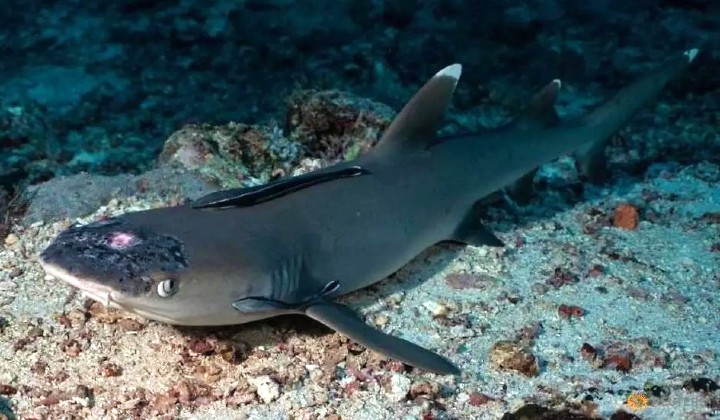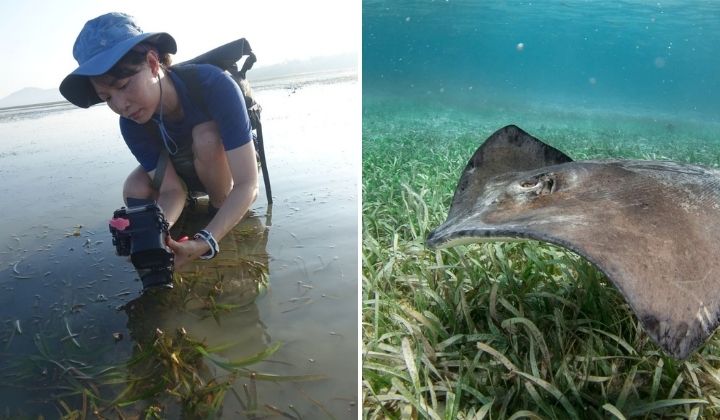Malaysian Sharks’ Mystery Skin Disease “Almost Certainly” Due To Rising Sea Temperatures
The poor whitetip reef sharks have lesions growing on their faces.

Subscribe to our Telegram channel for the latest stories and updates.
A few months ago, pictures of a Malaysian whitetip reef shark sporting dark spots and lesions on its face caused grave concern among marine conservation groups.
According to Reuters, the skin disease was spotted by an underwater photographer off the state of Sabah. Later on, divers and researchers noticed the same skin disease on every group of reef sharks when they dived at Sipadan island, off the east coast of Sabah.
A team of experts from Sabah universities, government agencies, and conservation groups dived deeper into the issue to find out what’s going on.
The sharks are cooking in hot water
They discovered that the surface temperature of the sea had risen to 29.5°C– a full 1°C more than the temperatures in 1985.

(Credit: ScubaZoo/Reuters)
The surface temperature of the sea usually means the temperature of water about 20 meters deep from the surface. Since whitetip reef sharks prefer shallow waters and are commonly found around 8-40 meters deep, it means that their main habitat has seen a drastic 1°C increase– which is a lot more serious than it sounds.
We can almost certainly pin the warming ocean as having a role in what we are seeing with the sickly sharks in Sipadan.
Davies Austin Spiji, a senior marine biologist with non-profit conservation group Reef Guardian to Reuters
According to Professor Mohamed Shariff Mohamed Din, an expert in fish diseases from Universiti Putra Malaysia, sharks are not the only animals to have been affected, as the rising water temperatures coincide with reports of coral bleaching in the area.
Correlation, but not yet confirmed a causation
While there is a strong correlation, especially with existing research on the dire effects of rising sea temperatures, a full scientific study has yet to be done to prove the causation.
However, the mysterious skin disease is unlikely to be caused by other things, since the waters the sharks reside in are in marine protected areas which prohibits human activity such as fishing.

(Credit: ScubaZoo/Reuters)
We cannot ignore that changes are happening there due to higher temperatures.
Professor Mohamed Shariff of the Aquatic Medicine (Fish Health) department at UPM to Reuters
Mabel Manjaji-Matsumoto, a senior lecturer with the Borneo Marine Research Institute of Universiti Malaysia Sabah, explained that the research team actually attempted to capture some ill sharks in May, but failed.
If we can get shark specimens, we will surely at least be able to find out the pathogenic cause of the lesions.
Mabel Manjaji-Matsumoto of UMS to Reuters
Without a close-up look at the skin disease on the sharks, further analysis can’t be done. However, the team plans to make another attempt in July.
Share your thoughts with us on TRP’s Facebook, Twitter, and Instagram.
Anne is an advocate of sustainable living and the circular economy, and has managed to mum-nag the team into using reusable containers to tapau food. She is also a proud parent of 4 cats and 1 rabbit.





